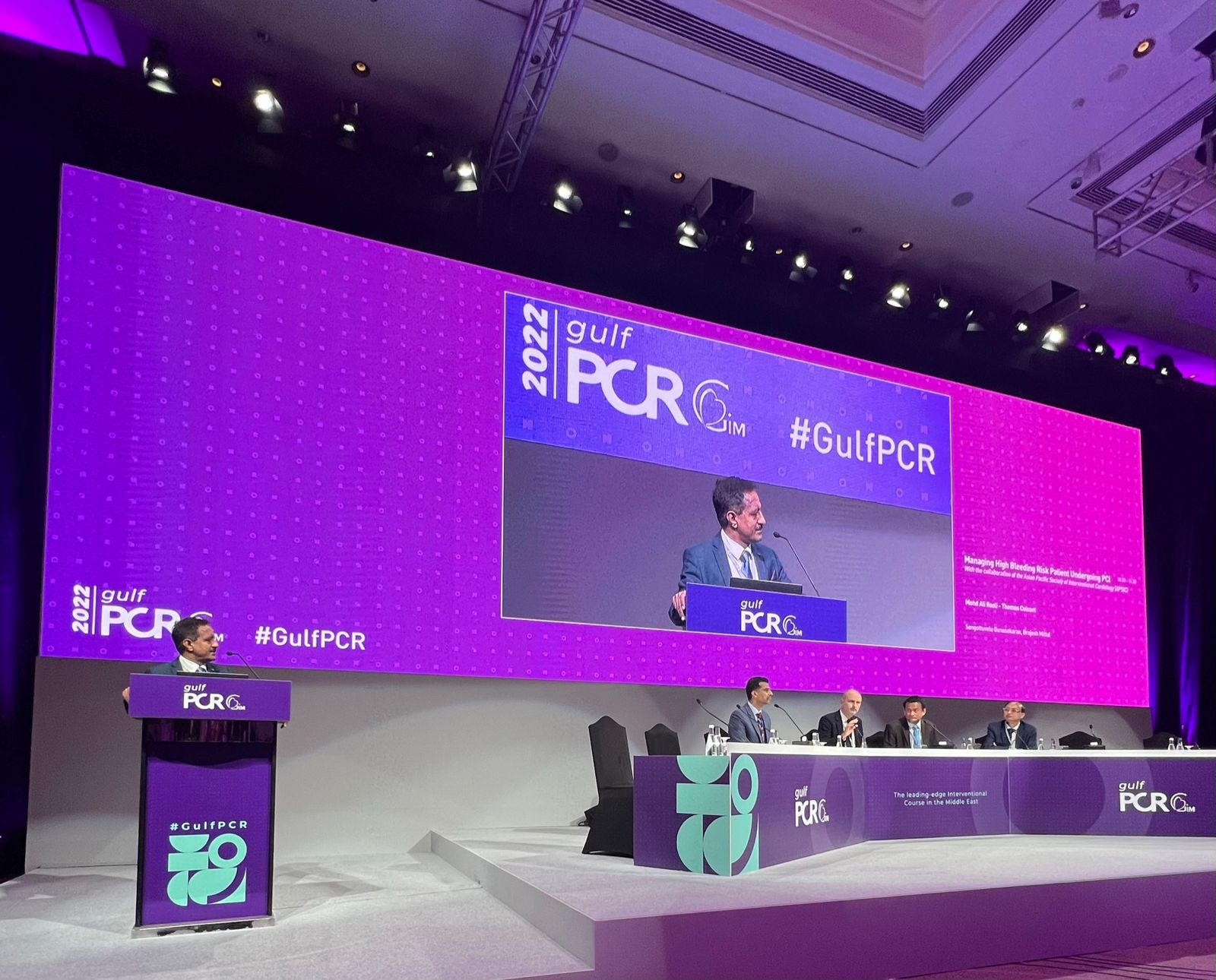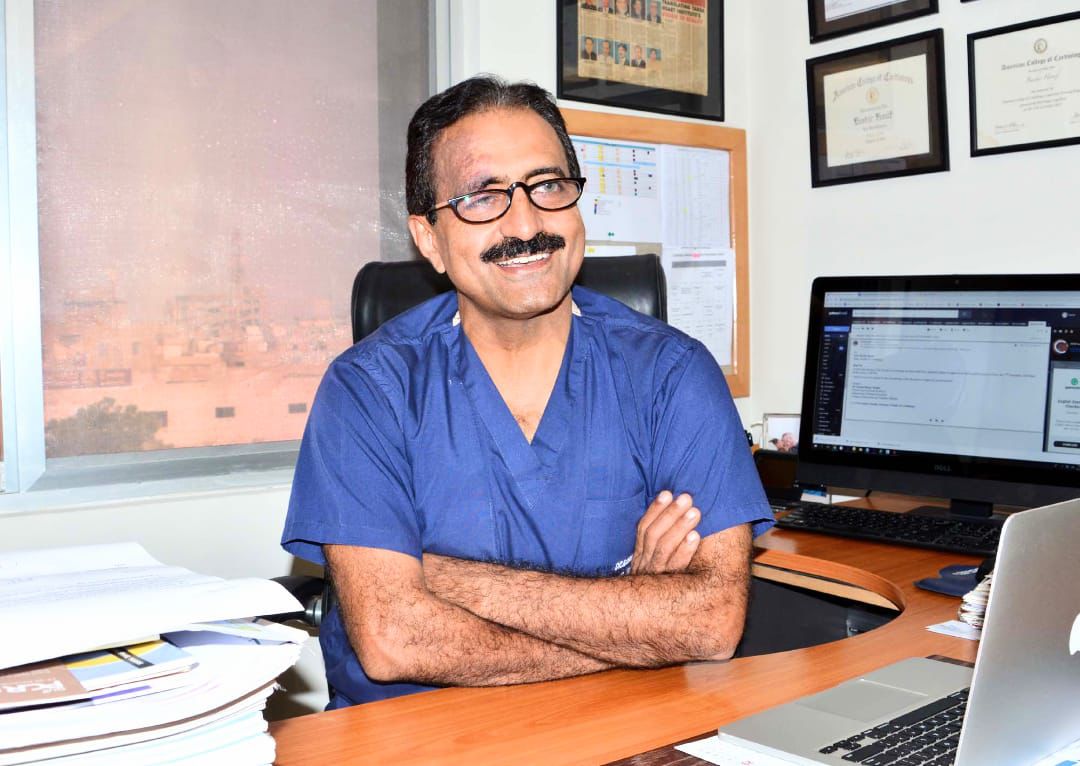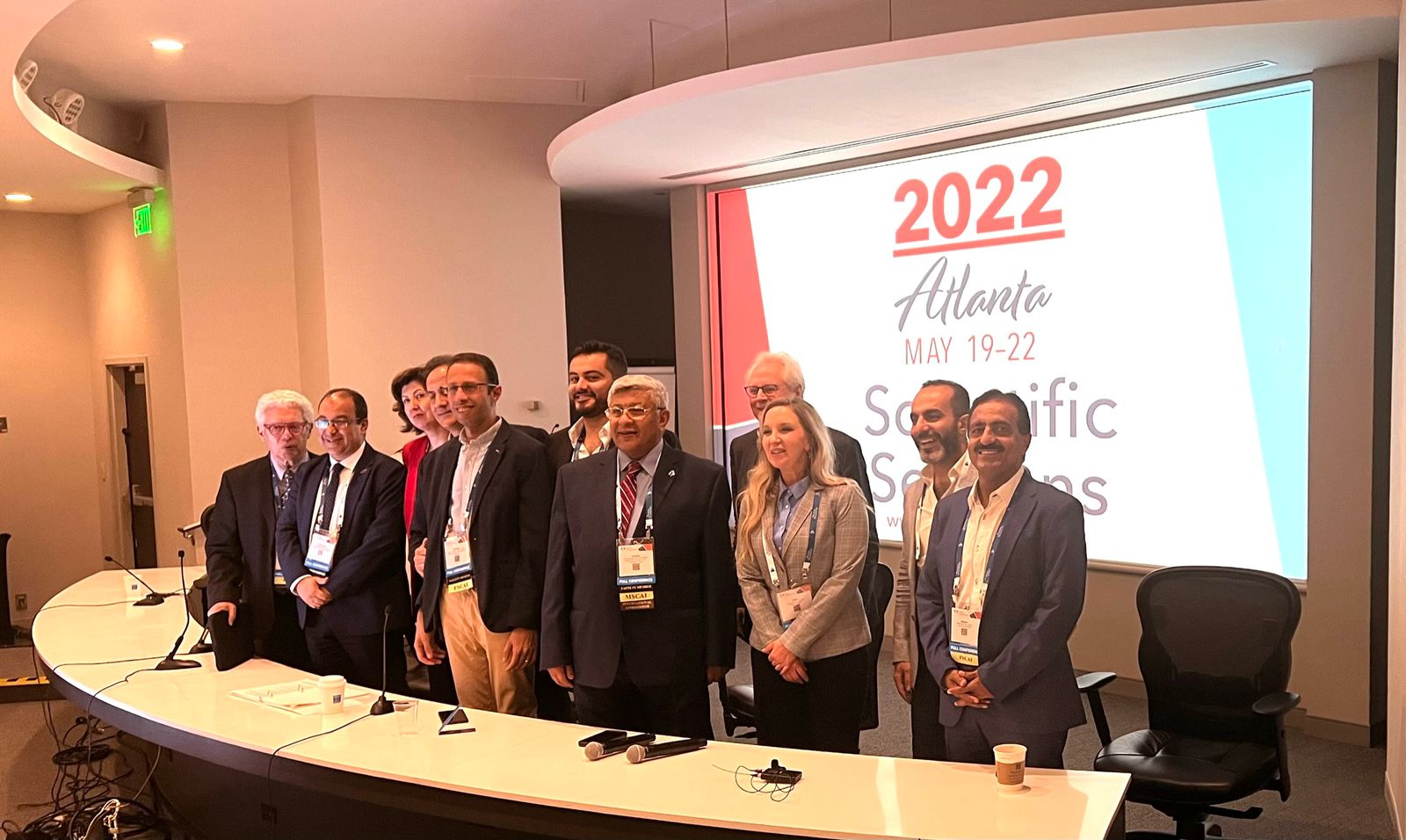What led to your decision to serve as a Cardiologist?
I always liked cardiology during my residency in internal medicine as it is a complex, constantly evolving and rapidly advancing field of medicine. It not only involves intellectual challenges and problem-solving, but offers a stimulating and rewarding career path.
I was always intrigued by rapid advances in cardiology that led to groundbreaking technologies and treatments that revolutionized patient care. As a Cardiologist, I always have the opportunity to be at the forefront of medical innovation, whether it's by participating in clinical research, developing new therapies, or implementing cutting-edge procedures. It is a highly skilled profession and gratifying career.
What does an average day in your life look like?
Being an extremely busy clinician and Executive Director of the hospital, I have a hectic schedule. I usually wake up at 5 am, go cycling four days a week, and rest of the days I walk 3-4 km; being a cardiologist I believe I need to practice what I preach to my patients. I am usually at Tabba Heart Institute at 8-8:15am to attend morning sessions with fellows after which my usual day at the hospital starts that can go on till 6-7 pm. After dinner with family I watch TV, and try to go to the gym at 9pm twice a week for HIIT with a group of friends. I usually sleep around 11-12 pm.
You have been a member/founder of many interventional cardiologist forums nationally and internationally. How do you see your field evolving in the future?
Cardiology and in particular interventional cardiology has progressed and evolved tremendously in the last couple of decades as compared to any other field in medicine. Drug eluting stents has been one of the biggest innovations to significantly reduce the risk of stent renarrowing. Structural heart disease interventions has been another very gratifying breakthrough especially Transcutaneous Aortic Valve Replacement (TAVR), Valve in Valve (ViV) replacements that were initially being performed in high risk patients and now in intermediate and low risk patients as well.
Structural heart disease interventions has been another very gratifying breakthrough especially Transcutaneous Aortic Valve Replacement (TAVR), Valve in Valve (ViV) replacements that were initially being performed in high risk patients and now in intermediate and low risk patients as well.
Future of cardiology is very promising and I feel structural heart disease interventions will grow very fast and valvular heart disease (VHD) interventions will be routine and surgery may not be required for any VHD in the near future. Artificial Intellegence will also revolutionize the field in many aspects.
From your time at AKU, do you have a favorite moment, anecdote or incident that is etched in your memory? How would you describe that journey?
My journey from AKU to today has been incredible. I started from humble beginnings; in fact, it was a very rough road. I used to travel to AKU after changing several buses and sometimes on foot. After class, I used to tutor college students all around the city till almost midnight every day. I not only had to support myself, but my family back in my village as well. I remember it very well that I used to come for tutoring just one street behind where I am living right now. Even after finishing AKU it wasn't easy as I had to collect funds from my friends and relatives to pay the fee for USMLE and then go to USA for residency interviews. I cannot forget the couple of months after the residency interviews when I started working at a photo shop in USA to be able to buy a ticket to return and then go back again to US for residency.
It has been a very gratifying and difficult journey. However, I cannot thank Allah SWT enough for His blessings to help me at every stage of my life. Coming back from the US in 2004 and starting Tabba Heart Institute in Karachi was another daunting task and the most gratifying experience of my journey. I am so happy to be a physician and a Cardiologist, and be able to bring positive changes in lives of so many people.
In your vast experience, what are the most pressing healthcare needs of our people? Where are we, as a healthcare community, doing well and where do we need more effort and investment?
In my experience, the most pressing healthcare need of our people is the availability of affordable and quality healthcare at the community level. We also need to focus on preventive medicine, rather than secondary, and tertiary care. Research and development in healthcare is another most pressing need of the hour in Pakistan. We are doing very well in secondary and tertiary care, where we have been able to provide the most advanced technology and procedures to our patients in all fields of medicine. However, we are miserably lacking in preventive healthcare and research in healthcare. We also need to focus and invest on medical education and change the curriculum of medical schools where there is more emphasis on preventive healthcare, as well as research and development.
If you had a time machine, which period of your journey as a healthcare professional would you like to revisit, and why? Would you change anything about that time?
I am very happy with my journey as a healthcare professional and satisfied with my professional career. I have been able to achieve the most important milestones in the history of cardiology in Pakistan so I would not change anything.
 I was able to start the first ever Cardiac Registry of Pakistan -CROP in which all Cath Labs across Pakistan are entering the data online. I started one of the most important cohort studies, the first of its kind in South East Asia, called the Pakistan Study of premature atherosclerosis in young Adults (PAK SEHAT): a prospective longitudinal study protocol investigating the prevalence, severity and determinants of Cardiovascular disease in Pakistan's young adult population. Establishing Tabba Heart Institute from the ground up according to international standards is another highlight.
I was able to start the first ever Cardiac Registry of Pakistan -CROP in which all Cath Labs across Pakistan are entering the data online. I started one of the most important cohort studies, the first of its kind in South East Asia, called the Pakistan Study of premature atherosclerosis in young Adults (PAK SEHAT): a prospective longitudinal study protocol investigating the prevalence, severity and determinants of Cardiovascular disease in Pakistan's young adult population. Establishing Tabba Heart Institute from the ground up according to international standards is another highlight.
It has been a gratifying professional journey and the best decision to move back to Pakistan after completing my training in the US. What I have been able to achieve and accomplish in Pakistan, I could not have achieved in my lifetime in the US.
Past Alumni Spotlights

